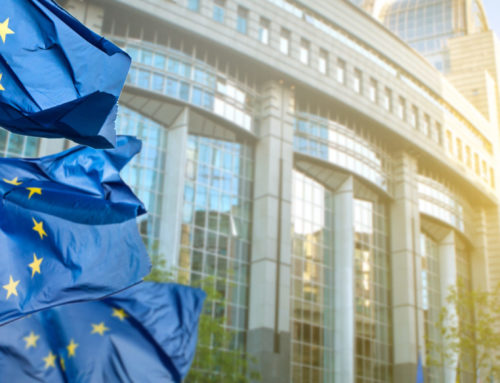After a period of adaptation since its promulgation on August 22, 2021, the French Climate and Resilience Act will see many of its provisions come into force this year.
What are the 2023 environmental and sustainable development events to watch for in France and Europe?
After a period of adaptation since its promulgation on August 22, 2021, the French Climate and Resilience Act will see many of its provisions come into force this year.[1]
In focus: housing, transport, greenwashing and GHG emissions
As of January 1, 2023, the energy performance criterion will be included in the definition of “decent housing” and the most energy-intensive housing will no longer be available for rent. The housing considered as energy strainers will also be subjected from April 1st to an energy audit in addition to the existing energy performance diagnosis.
The ban on the use of polluting vehicles in the ten or so urban areas that exceed the air pollution thresholds will also apply this year.
The regulation on carbon neutrality claims in advertising also comes into force in 2023: it is now mandatory to prove any carbon neutrality advertising claim in an easily accessible way. This measure officially considers greenwashing as a misleading commercial practice.
The system of greenhouse gas emissions assessments (BEGES), which requires organizations to regularly produce a public GHG emissions report, is evolving: since January 1, it has been mandatory to take into account all of the organization’s significant indirect emissions, in addition to its direct emissions and indirect emissions associated to the energy consumed.

The French objective of carbon neutrality by 2050 will be updated by the first ever five-year programming law on energy and climate.
France sets its objectives and priorities for action and embeds them in its legislative framework
The French objective of carbon neutrality by 2050 will be updated by the first ever five-year programming law on energy and climate.[2] [3]
The result of the 2019 Energy and Climate Law and a consultation process completed in February 2021, the Energy and Climate Programming Law (LPEC) will be voted on before July 1, 2023. This text must set the objectives and priorities of French action in energy and climate, taking into account the increase of the European objective of reducing net greenhouse gas emissions to -55% in 2030.
In order to implement the orientations defined by the LPEC, the third editions of the national low-carbon strategy (SNBC), the national plan for adaptation to climate change (PNACC) and the multiannual energy program (PPE) will be established by decree by July 2024.
Referring to the European will to reduce net greenhouse gas emissions by at least 55% by 2030, the “Fit for 55” package aims to align EU legislation with this objective.
Europe focuses on the “Fit for 55” package
The year 2023 will be punctuated by European negotiations on the legislative package “Fit for 55”.
Referring to the European will to reduce net greenhouse gas emissions by at least 55% by 2030, the “Fit for 55” package aims to align EU legislation with this objective.
It includes 12 legislative proposals currently ongoing varying degrees of progress, covering all economic sectors [4] [5]:
| Fit for 55 proposal | Where are we in 2023 ? |
| EU Emissions Trading System | Provisional agreement on a strengthened scheme extended to the maritime, buildings and road transport sectors. |
| Efforts Sharing Regulation | Provisional agreement on an EU-wide emissions reduction target of 40% by 2030 for sectors outside the EU ETS. |
| Land use and forestry (LULUCF) | Provisional agreement on an overall target of 310 million tCO2 of net removals in the sector by 2030. |
| Alternative Fuels Infrastructure | Trilogue* discussions underway to accelerate the deployment of infrastructure to charge or refuel vehicles with alternative fuels. |
| Carbon Border Adjustment Mechanism (CBAM) | Agreement on the establishment of a CBAM from 2023 onwards, setting a carbon price for imports of certain products into the EU. |
| Social Climate Fund | Provisional agreement on providing Member States with financial means to mitigate the social consequences of the new emissions trading scheme. |
| RefuelEU Aviation and FuelEU Maritime | Ongoing trilogue* negotiations on proposals for the use of sustainable aviation fuels and renewable and low-carbon fuels in maritime transport. |
| CO2 emission standards for cars and vans | Agreement on ending the sale of new combustion engine cars and vans by 2035, validated in Parliament on 14 February 2023. |
| Energy taxation | Proposal to align the taxation of energy products in Europe with current EU energy and climate policies under discussion in Council. |
| Renewable energy | Trilogues* to be held on the proposal to raise the overall target of 32% of energy from renewable sources to 40% by 2030. |
| Energy efficiency | Upcoming trilogue* negotiations on the proposal to raise the overall energy efficiency target from 32.5% to 36% for final energy consumption and 39% for primary energy consumption by 2030. |
| Energy performance of buildings | Upcoming trilogues* on revising the current directive so that all new buildings are zero-emission buildings by 2030 and existing buildings are converted to zero-emission buildings by 2050. |
Do you need help integrating CSR effectively into your business strategy? You are in the right place.
Make an appointment to find out how to initiate and structure the process while guaranteeing your chances of success.
Notes and references
* Trilogues are informal negotiations between the Council of the EU, the European Commission and the European Parliament. The aim is to reach an agreement on a text acceptable to the Council and Parliament. It is called a “provisional” agreement because it must then be approved according to the formal procedures of each institution.
[1] Énergie et climat : ce qui change au 1er janvier 2023, Ministère de la Transition écologique et de la Cohésion des territoires et Ministère de la Transition énergétique
[2] Stratégie Nationale Bas-Carbone (SNBC), Ministère de la Transition écologique et de la Cohésion des territoires et Ministère de la Transition énergétique
[3] Élaboration de la future Stratégie française sur l’énergie et le climat, Ministère de la Transition écologique
[4] Fit for 55, European Council
[5] Timeline – European Green Deal and Fit for 55, European Council
About Positiveco
At Positivéco, we see new national and international CSR regulations as vectors for positive growth.
Our job: improve the readability of your activities for a better valuation.
Since 2009, we have been supporting financial institutions, public players, and listed and unlisted companies in the evaluation of their CSR policies, the production of their extra-financial reporting and the implementation of their climate investment and aid projects. Development.
Make an appointment today and find out how to meet the new requirements of economic transparency while serving the project of your company.









Contact us now!